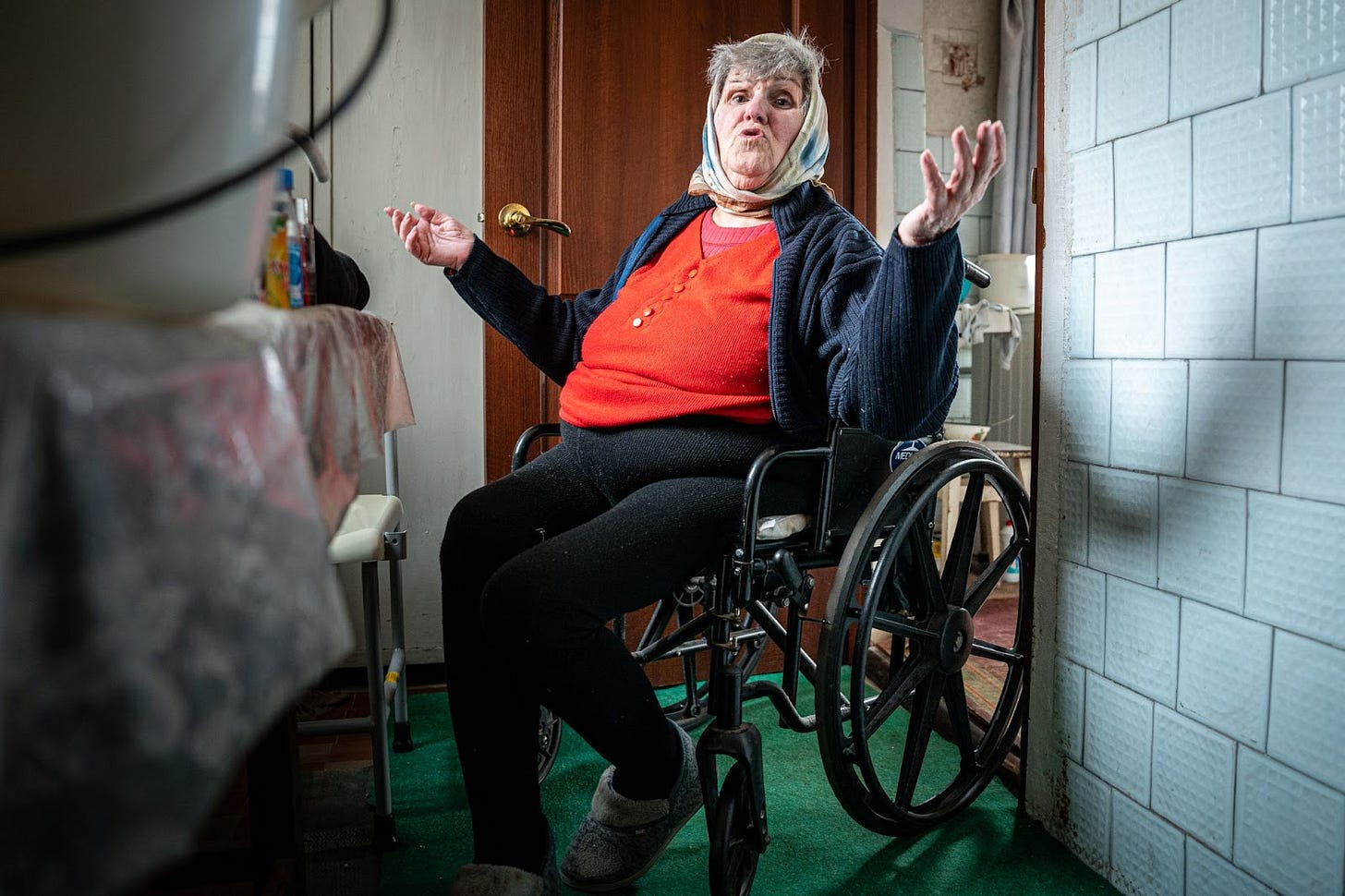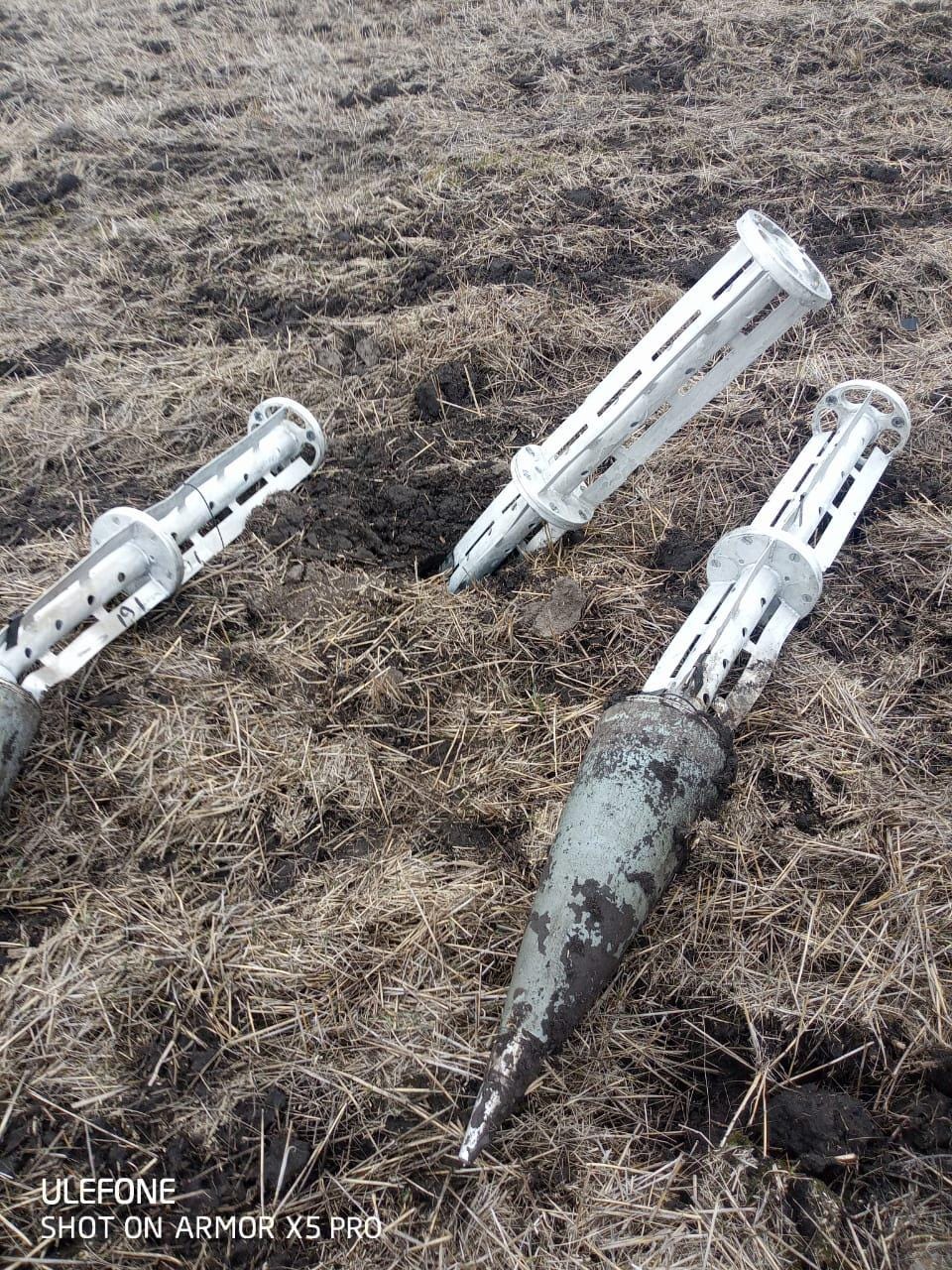They live on the frontlines. Why won’t they leave?
Inside the mindset of border inhabitants who refuse to evacuate. In reporter’s notebook, Alessandra visits refugees to understand how Belarusians in Kyiv have fled from Russian influence twice.
Editor’s Note: We’re writing at a dark time – literally and figuratively – for our publication. We’re anticipating a difficult period ahead due to constant power outages and a declining paid subscribership.
And yet, with the war on the line, our work matters more than ever – upgrade now if you agree and want to help us keep going.
Nataliia views her prized newspaper archives, holding clippings dating back to the 1940s, as even more important than her own life.
On May 8, while Russia launched its new offensive in the northeast of Ukraine, rockets struck 300 meters from Nataliia's newspaper office in the Sumy region. But even after that, Nataliia and her colleagues refused to leave their town.
They made sure that the archive of historical newspapers would be evacuated instead.

Nataliia is one of no more than 2,000 citizens out of the 16,500 pre-war population who remain in the town, as Yurii Zarko, the head of the Bilopillia community, explained.
On May 10, Russia launched a new offensive in northeastern Ukraine, in the Kharkiv Region. However, there is still no certainty that the Russian army will not try to surge across the border into neighboring Sumy, which has been under heavy shelling since the beginning of this year.
Evacuations of civilians have been announced by the authorities in both Kharkiv and Sumy regions. So far, about 20,000 people have been evacuated from the dangerous areas of these regions. Although they risk losing their lives to Russian shelling, there are many who do not want to leave.
Each has personal reasons for staying behind.
Nataliia Kalinichenko, editor-in-chief of a local newspaper “Bilopilshchyna”, is proud to stay in her hometown of Bilopillia, just 10 kilometers from the Ukraine-Russian border.
She compares staying put to some kind of mission.
She has spent her entire life in Bilopillia, and has been working as a journalist and editor at the newspaper for 30 years. This year, the ‘Bilopilshchyna’ celebrates its 104th anniversary – the first issue was published in 1920. Today it is the oldest printed publication in the Sumy region.

When the Ukraine Rapid Response Fund, a U.S. initiative to address the humanitarian needs of Ukrainians, offered to evacuate Nataliia and her colleagues, she asked instead for their editorial archive to be taken out for safety.
“Let's just say that we have worked out a certain pattern…” Nataliia said. “Maybe it's a little bit stupid, a little bit dark… not in keeping with life, but it's already been practiced. And maybe it's some kind of mission… While you're here, you record everything, you see everything.”

Many of Nataliia's friends also do not want to evacuate, although they live in villages that are even closer to the border with Russia.
"I called my friend and asked her: ‘Why aren't you leaving?’ And she said: ‘I sowed the garden, but I'm in trouble – a rocket fell on the garden. So now I don't sow half the garden because the rocket is sticking out of the ground and it hasn't been neutralized yet. So I don't go close, but sow everything in front of the rocket.’ That's how they live," Nataliia said, with a smile on her face.
It is mostly the elderly who refuse to evacuate. They often argue that they were born here, this is their land, their parents and grandparents lived here, and so they will die here.
Some people are also used to living off their farmland, and don’t want to try living elsewhere, as Yurii said: “If a person from a village who is used to having pigs, cows, etc. is moved somewhere else, he or she will not survive on a pension."
"It's psychologically painful for people to leave their homes – they cry, some of them are hysterical," said Borys, a fixer and volunteer from Kharkiv who took part in the evacuation in Kharkiv Region.

It's not just about material losses, but also about people's emotional attachment to their homes. People are often living under heavy shelling and other enemy attacks, but despite all this, they still do not want to leave.
Another important reason why people do not want to evacuate is fear of the unknown, explained Dmytro Myshenin, head of the Angels of Salvation charity foundation, which has been involved in evacuation since 2022.
"People do not know where they are going and what awaits them. If you tell a person that they will go to a specific place and that they will be fed there, and that they will be safe and well off, then very often people agree to evacuate. These are the most decisive factors and the most convincing argument," Dmytro said.
A lot of people have lived their whole lives in a small town or village. For them, leaving is unusual, surprising, scary, and unpredictable. The main task of volunteers is to explain to evacuees as much as possible and work with their fear, explained Yaroslav Kornienko, evacuation coordinator at the East-SOS charity foundation.
Since their foundation specializes in the evacuation of people with limited mobility, who often cannot take care of themselves, this problem is even more urgent, Yaroslav explained. They are used to living in their environment. For example, they have a neighbor who takes care of them, comes to cook borscht every three days, and homes that are tailored to their needs. If they leave, they fear that they may find themselves in a completely different environment in which they will not be able to live independently.

Relatives who take care of such people often refuse to evacuate as well, fearing that they may have difficulties finding housing for a disabled person, trouble with transportation, or struggle to find a new job that would allow them to buy medicines and pay rent.
Since the evacuation has been going on for a long time, some of Nataliia's friends have not only evacuated but also returned to their villages, as they realized that they have their own house and land there, while in the city they "need to buy potatoes and carrots".
Nataliia's son and his family live in Sumy, which is farther from the border and safer, but she hopes for a better situation in Bilopillia and is not going to leave her beloved village.
"As long as there is us, as long as there are those who protect us, we live somehow," she said.
AFTER THE PAYWALL: U.S. warns Ukraine not to hit Russian radar stations that warn of incoming nukes; and in reporter’s notebook, Alessandra visits a Belarusian bar in Kyiv to get a glimpse of how this refugee group, which has two reasons to be angry at Russia, gathers as a community.
Keep reading with a 7-day free trial
Subscribe to The Counteroffensive with Tim Mak to keep reading this post and get 7 days of free access to the full post archives.




